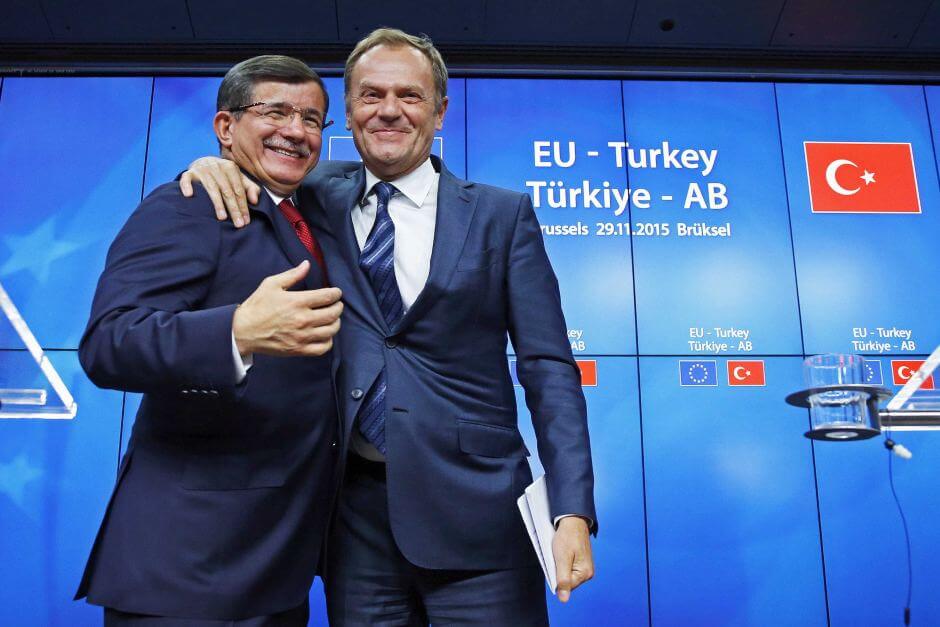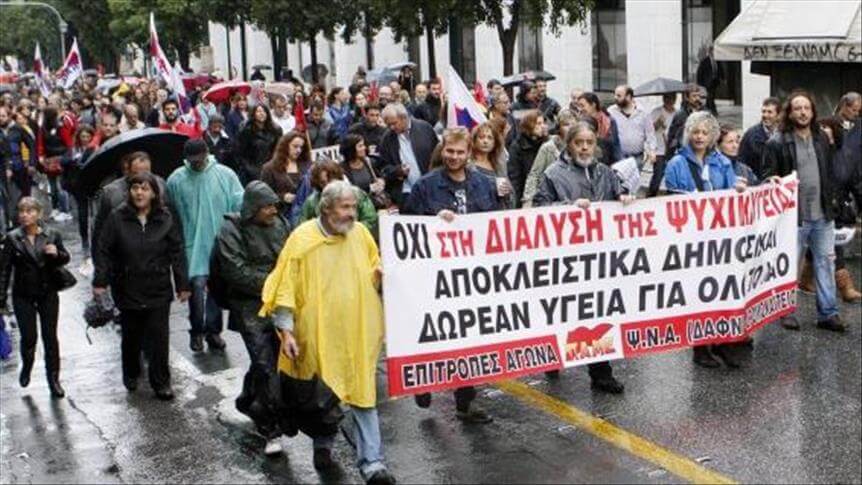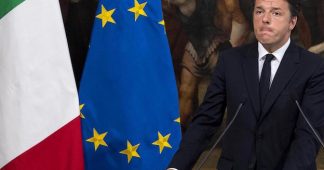By Andreas Theophanous
Andreas Theophanous is Professor of Political Economy and President of the Center for European and International Affairs of the University of Nicosia
Jean-Claude Juncker’s 2016 State of the European Union address was clear in its analysis: the EU is at a critical juncture and has to become more effective to regain its credibility. But the solution needs more work. Crucially, it needs political will. And it needs an understanding of past failures – not least those that have inflicted harm on Cyprus since 2013.
The Commission President gave his address three months after the UK backed Brexit. Traditional British Euroscepticism and issues such as migration were big factors in the result, but so too were the structural weaknesses of the EU.
Problems abound. Terrorism haunts the EU. European citizens are paying the price of upheaval in the Middle East and North Africa and the lack of policies to enhance stability and development in those regions. The EU has failed to adopt policies to face the socioeconomic problems afflicting the Union. There is high unemployment, social exclusion, increasing inequality and a mood of uncertainty.
Addressing the chronic eurozone crisis is a key starting point in addressing the problems. Juncker said that the Commission ‘will address how to strengthen and reform our economic and monetary union’ and underlined ‘the need to implement the Stability and Growth Pact with common sense’.
“Uniform policies have limits; now, nation states need to be able to address their own challenges”
Implicitly, there is an admission of the huge mess created by austerity policies. These policies cannot be sustained without further strains in the eurozone and the EU as a whole. Participation in the eurozone makes it difficult for a country to pursue discretionary policies to address a serious recession, as it has to stick to a balanced budget. This deepens the crisis, with further spending cuts and increased taxes. In effect, we have a set of automatic destabilisers that, when taken in conjunction with a tight monetary policy, lead to a vicious deflationary cycle. For the eurozone to function there must be a system of fiscal support from the centre, a philosophy that is currently missing.
This explains the Commission President’s wish to stress the importance of solidarity – ‘the glue that keeps our Union together’. But here too, the Union has failed. Italy has recently received support to address its banking crisis (about €400bn in non-performing loans), but no “bail-in” was required – as was the case, with devastating results, in Cyprus in March 2013. Obviously, this is a case of double standards. According to Spain’s former foreign minister of Spain, Miguel Ángel Moratinos, the EU acted myopically in not helping Cyprus address its crisis; on the contrary, the policies dictated by the EU deepened the crisis.
The decisions of the Eurogroup in March 2013 were influenced by other considerations as well: the timing of the German elections, containment of the Russian presence in Cyprus, and using the island as both a testing ground for future crises and an example to other, larger, more troublesome countries. Cyprus did not deserve this treatment, and the handling of the crisis caused other problems – for example, Germany is seen as hegemonic, and the Troika faces legitimacy problems as its economic philosophy (both in theory and practice) appears to lack reason and sensitivity.
Cyprus shares these problems with others, not least Greece, where socioeconomic conditions remain harsh. Unemployment approaches 30% despite the fact that thousands of Greeks have emigrated, there is a huge fiscal cliff, and deflation and decreasing salaries and pensions are creating suffocating conditions leading to unprecedented poverty levels. Greece is facing the depression of the century.
“The EU acted myopically in not helping Cyprus address its crisis; on the contrary, the policies dictated by the EU deepened the crisis.”
The experiences of Cyprus and Greece, especially given the endogenous structural problems of these two countries, highlight how the Troika’s recipes have worsened the situation, undermined social cohesion and jeopardised the geopolitical interests of the EU. Such attitudes and practices are related to the Union’s current malaise. There is a huge “solidarity deficit”, with deep institutional, structural and cultural differences between the member states. Equally, uniform policies have limits; now, nation states need to be able to address their own challenges.
Of course, Cyprus’s difficulties are not merely financial. In his speech, Juncker called for a solution to division of the island, offering the EU’s support. There is the “two communities” dimension to this problem, but the international and geostrategic aspects are even more important. Turkey’s role is overwhelming – and the EU has to acknowledge that Turkey occupies European territory. A solution of the Cyprus problem based on ethnocommunal pillars would probably lead to frustration and even destabilisation. Instead, Cyprus will have a better future with an integrationalist, federal model. The EU could encourage such an approach (even though this may entail evolutionary processes), and highlight that it maintains a substantive role in global affairs.
We should remember that when Cyprus embarked on accession negotiations it was the country with the highest levels of enthusiasm for the EU. Obviously there were high expectations, generally linked to the stated “value system” of the EU. But more than 12 years after Cyprus’s accession to the Union and almost nine years after adoption of the euro, Cypriots are increasingly Eurosceptic. This is despite the efforts of the government and the Troika to describe Cyprus as a success story. The reality is that Cyprus is a success story only when compared to Greece.
Cyprus aside, we must also acknowledge that there is widespread uncertainly about the future of the EU. Various leaders, technocrats, academics and analysts – as well as citizens – fear that the Union faces an existentialist dilemma. We need more than rhetoric to understand and address the EU’s problems. And we need both solidarity and flexibility.
First published by Europe’sWorld











